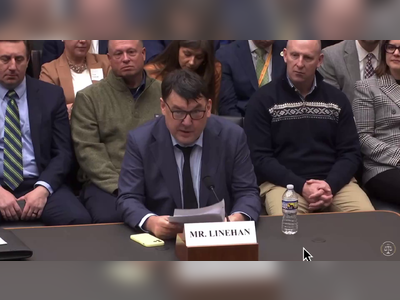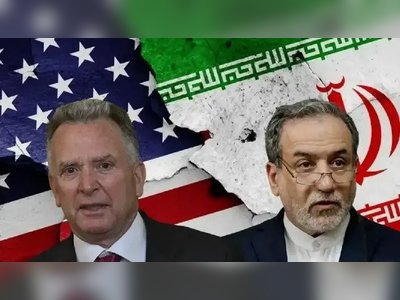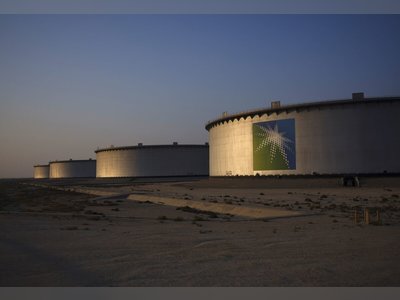
Israel Proposes Dismantling UNRWA and Creating New Entity for Gaza Aid, Sparking Controversy
Israel has proposed to the UN the dismantlement of the UNRWA (United Nations Relief and Works Agency for Palestine Refugees) and the transfer of its responsibilities and staff to a new entity in return for allowing more food aid deliveries into Gaza.
The proposal was presented by Israeli Chief of the General Staff Lt. Gen. Herzi Halevi to UN officials in Israel in March, who then relayed it to UN Secretary-General António Guterres.
UNRWA, which has been operating in the Palestinian territories since 1950, was not involved in the talks due to IDF's refusal to deal with it over unverified claims of some staff involvement in October incidents.
The text discusses the suspension of $450 million in funding for Israel due to unsubstantiated claims of seven attacks.
This funding freeze comes at a critical time as the blockade in Gaza is pushing 2.3 million residents towards famine.
Israel argues that it is willing to facilitate aid flows into Gaza but blames the UN's capacity and its non-cooperation with UNRWA for the obstacles.
A proposal suggests transitioning 300-400 UNRWA staff to other UN agencies or a new food distribution organization in Gaza.
The plan also includes the transfer of more UNRWA employees and assets, but the management and security of the new entity are unclear.
Tamara Alrifai, UNRWA's director of external relations, expressed concerns about the proposed new entity's limited scale and its potential impact on effective aid distribution in Gaza.
She explained that UNRWA's extensive infrastructure and human resources would be necessary for the new entity to operate, as they would use UNRWA's trucks, warehouses, and shelters for food distribution.
UNRWA is the largest aid organization in Gaza, employing over 13,000 people when the war broke out, with 3,000 still working.
The agency not only distributes food but also provides education and critical medical services in Gaza, where the healthcare system is collapsing.
UNRWA, the United Nations Relief and Works Agency for Palestine Refugees in the Near East, provides more than just food aid in Gaza.
Alrifai, UNRWA's spokesperson, highlighted their healthcare services, with seven healthcare centers, 23,000 daily consultations, and 53,000 vaccines administered since the war began.
Some UN officials view Israel's proposal to bypass UNRWA for food aid as an attempt to undermine the agency and potentially lead to direct Israeli management.
Others see it as part of a long-standing campaign against UNRWA.
A UN official warned that allowing this could result in the UN being complicit in the elimination of UNRWA, which is the largest aid provider and a significant anti-extremism force in Gaza.
The US has endorsed Israel's proposal to integrate UNRWA's functions into other UN agencies, but the plan faces opposition from UN Secretary-General António Guterres and some donors.
Guterres has emphasized the importance of UNRWA and its services to Palestinians, stating it would be "cruel and incomprehensible" to stop them.
UNRWA's authority and continuation are determined by the UN General Assembly, and several UN aid officials argue that only UNRWA has the resources and trust of Palestinians to deliver food aid to Gaza effectively.
Attempting to create a new aid organization for political reasons amid Israeli bombardment of Gaza could be disastrous.
The UNRWA spokesperson, Chris Gunness, expressed outrage over discussions between UN agencies like WFP and UN officials regarding the dismantling of UNRWA.
He emphasized that only the United Nations General Assembly has the authority to give or change UNRWA's mandate, and neither the secretary-general nor any single member state can do so.
UNRWA, which has been operating in the Palestinian territories since 1950, was not involved in the talks due to IDF's refusal to deal with it over unverified claims of some staff involvement in October incidents.
The text discusses the suspension of $450 million in funding for Israel due to unsubstantiated claims of seven attacks.
This funding freeze comes at a critical time as the blockade in Gaza is pushing 2.3 million residents towards famine.
Israel argues that it is willing to facilitate aid flows into Gaza but blames the UN's capacity and its non-cooperation with UNRWA for the obstacles.
A proposal suggests transitioning 300-400 UNRWA staff to other UN agencies or a new food distribution organization in Gaza.
The plan also includes the transfer of more UNRWA employees and assets, but the management and security of the new entity are unclear.
Tamara Alrifai, UNRWA's director of external relations, expressed concerns about the proposed new entity's limited scale and its potential impact on effective aid distribution in Gaza.
She explained that UNRWA's extensive infrastructure and human resources would be necessary for the new entity to operate, as they would use UNRWA's trucks, warehouses, and shelters for food distribution.
UNRWA is the largest aid organization in Gaza, employing over 13,000 people when the war broke out, with 3,000 still working.
The agency not only distributes food but also provides education and critical medical services in Gaza, where the healthcare system is collapsing.
UNRWA, the United Nations Relief and Works Agency for Palestine Refugees in the Near East, provides more than just food aid in Gaza.
Alrifai, UNRWA's spokesperson, highlighted their healthcare services, with seven healthcare centers, 23,000 daily consultations, and 53,000 vaccines administered since the war began.
Some UN officials view Israel's proposal to bypass UNRWA for food aid as an attempt to undermine the agency and potentially lead to direct Israeli management.
Others see it as part of a long-standing campaign against UNRWA.
A UN official warned that allowing this could result in the UN being complicit in the elimination of UNRWA, which is the largest aid provider and a significant anti-extremism force in Gaza.
The US has endorsed Israel's proposal to integrate UNRWA's functions into other UN agencies, but the plan faces opposition from UN Secretary-General António Guterres and some donors.
Guterres has emphasized the importance of UNRWA and its services to Palestinians, stating it would be "cruel and incomprehensible" to stop them.
UNRWA's authority and continuation are determined by the UN General Assembly, and several UN aid officials argue that only UNRWA has the resources and trust of Palestinians to deliver food aid to Gaza effectively.
Attempting to create a new aid organization for political reasons amid Israeli bombardment of Gaza could be disastrous.
The UNRWA spokesperson, Chris Gunness, expressed outrage over discussions between UN agencies like WFP and UN officials regarding the dismantling of UNRWA.
He emphasized that only the United Nations General Assembly has the authority to give or change UNRWA's mandate, and neither the secretary-general nor any single member state can do so.
Translation:
Translated by AI











